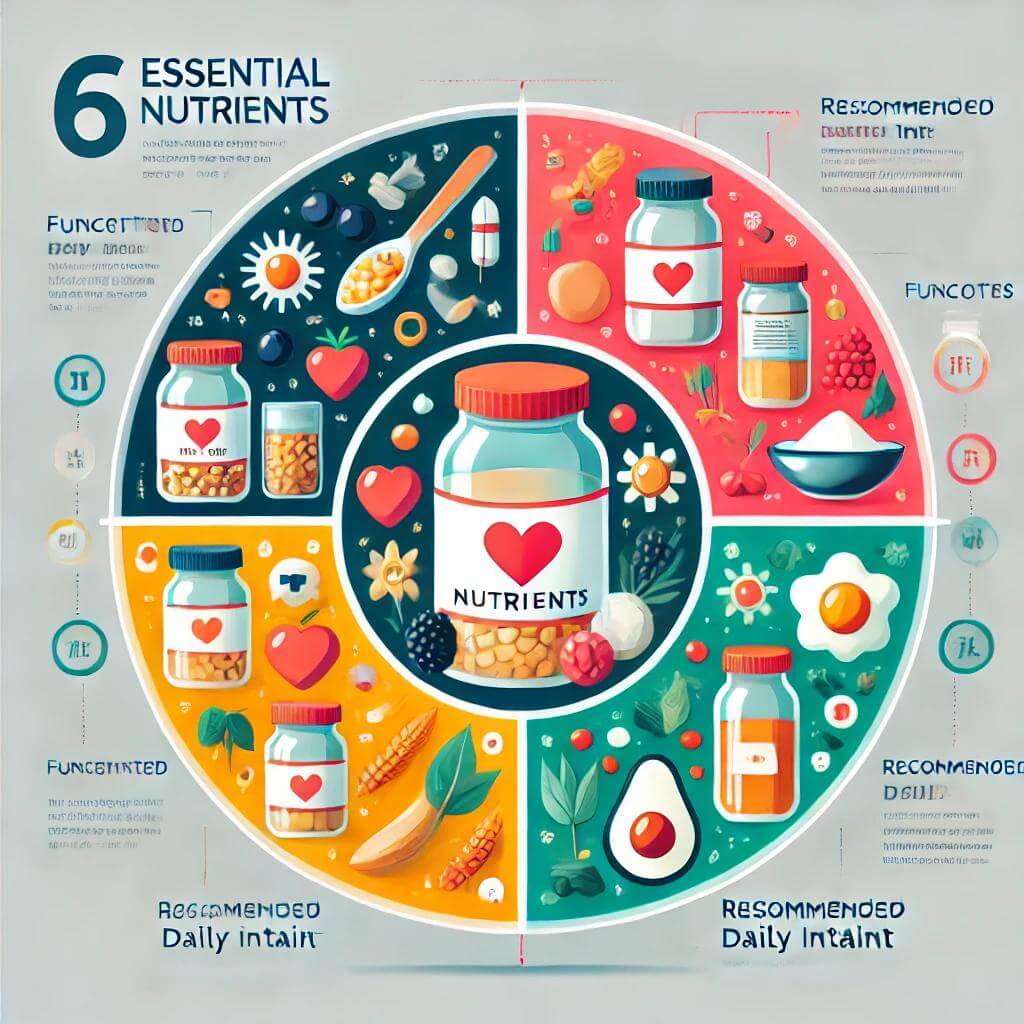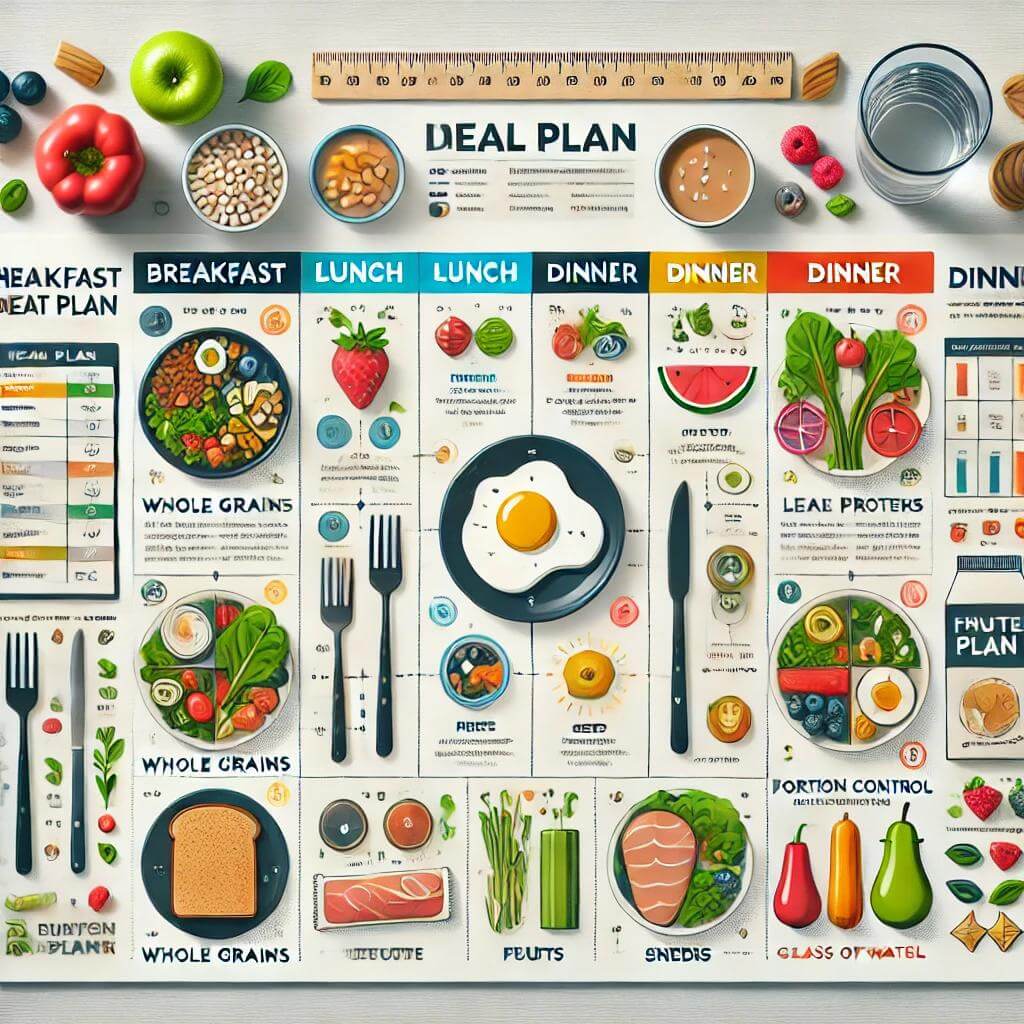Healthy Nutrition
Healthy Nutrition
A healthy nutrition is the foundation of good health and well-being. It involves consuming a variety of foods that provide the necessary nutrients to maintain energy, promote growth, and support overall bodily functions. In today’s fast-paced world, understanding what constitutes a healthy diet can be challenging, but it is essential for preventing chronic diseases, managing weight, and enhancing quality of life. This article will explore the key components of a healthy diet, the benefits, and how to incorporate these practices into your daily life.
Key Components of a Healthy Nutrition
1. Balanced Macronutrient Intake
- Carbohydrates: The body’s primary source of energy. Focus on complex carbohydrates like whole grains, fruits, and vegetables rather than simple sugars.
- Proteins: Essential for building and repairing tissues. Include lean meats, poultry, fish, beans, and legumes in your diet.
- Fats: Necessary for hormone production and nutrient absorption. Prioritize healthy fats found in olive oil, avocados, nuts, and seeds.
2. Micronutrient-Rich Foods
- Vitamins: Vital for immune function, energy production, and blood clotting. Incorporate a variety of fruits and vegetables to ensure you’re getting enough vitamins A, C, D, E, and K.
- Minerals: Important for bone health, hydration, and muscle function. Foods rich in calcium, potassium, magnesium, and iron should be included in a balanced diet.
3. Adequate Fiber Intake
- Soluble Fiber: Helps control blood sugar levels and lowers cholesterol. Found in oats, nuts, seeds, and some fruits.
- Insoluble Fiber: Aids in digestion and prevents constipation. Present in whole grains, vegetables, and legumes.
4. Hydration
- Water: Essential for every bodily function, from digestion to temperature regulation. Aim to drink at least 8 glasses of water per day.
- Herbal Teas and Infused Waters: Alternatives to plain water that can provide additional nutrients and antioxidants.
5. Portion Control and Mindful Eating
- Portion Sizes: Understanding the appropriate serving sizes to avoid overeating and maintain a healthy weight.
- Mindful Eating: Paying attention to what and how much you eat, and recognizing hunger and fullness cues.
6. Limited Intake of Processed Foods and Sugars
- Processed Foods: Often high in unhealthy fats, sugars, and salt. Limit consumption to reduce the risk of chronic diseases.
- Added Sugars: Found in sweets, sodas, and many packaged foods. Excessive intake can lead to weight gain, diabetes, and heart disease.
7. Regular Meal Patterns
- Breakfast: Jump-starts metabolism and provides energy for the day.
- Balanced Meals: Including a source of protein, carbohydrates, and fat in each meal to maintain energy levels throughout the day.
- Snacking: Healthy snacks, like fruits, nuts, and yogurt, can help keep hunger at bay and prevent overeating at meals.
Health Benefits of a Balanced Nutrition
1. Weight Management
- Balanced Diet: Helps maintain a healthy weight by providing necessary nutrients without excess calories.
- Portion Control: Prevents overeating and promotes weight loss when combined with regular physical activity.
2. Reduced Risk of Chronic Diseases
- Heart Disease: A diet low in saturated fats and high in fruits, vegetables, and whole grains can reduce the risk of heart disease.
- Diabetes: Managing carbohydrate intake and avoiding added sugars can help prevent or manage diabetes.
- Cancer Prevention: Certain foods like fruits, vegetables, and whole grains have been linked to a reduced risk of some cancers.
3. Improved Mental Health
- Nutrients for the Brain: Omega-3 fatty acids, vitamins, and minerals play a crucial role in brain function and mental well-being.
- Mood Regulation: A balanced diet can help regulate mood and reduce symptoms of depression and anxiety.
4. Enhanced Energy Levels
- Stable Blood Sugar Levels: Eating balanced meals at regular intervals helps maintain stable energy levels throughout the day.
- Avoiding Energy Slumps: Minimizing sugar and refined carbohydrates can prevent the energy crashes that often follow their consumption.
5. Better Digestive Health
- Fiber Intake: Promotes regular bowel movements and prevents digestive disorders.
- Probiotics: Foods like yogurt, kefir, and fermented vegetables can support gut health by maintaining a healthy balance of gut bacteria.
6. Healthy Skin and Hair
- Antioxidants: Found in fruits and vegetables, antioxidants protect the skin from damage and promote a youthful appearance.
- Healthy Fats: Essential fatty acids from nuts, seeds, and fish help maintain skin elasticity and hair strength.
7. Stronger Immune System
- Vitamins and Minerals: Nutrients like vitamin C, vitamin D, zinc, and iron are crucial for a robust immune system.
- Antioxidants: Help fight off free radicals and protect the body from infections.
Practical Tips for Implementing a Healthy Nutrition
1. Meal Planning
- Weekly Meal Prep: Planning meals ahead can save time and ensure that you have healthy options readily available.
- Grocery Lists: Create a list of healthy foods to buy and stick to it to avoid impulse purchases.
2. Cooking at Home
- Control Ingredients: Home cooking allows you to control the quality and quantity of ingredients used.
- Experiment with Recipes: Trying new recipes can make healthy eating more enjoyable and sustainable.
3. Smart Snacking
- Healthy Options: Keep healthy snacks like nuts, fruits, and yogurt on hand to avoid reaching for unhealthy options.
- Portion Control: Pre-portion snacks to avoid overeating.
4. Eating Out
- Choose Wisely: Opt for grilled, baked, or steamed dishes instead of fried ones.
- Watch Portions: Restaurant portions are often larger than necessary; consider sharing a dish or taking half home.
5. Reading Food Labels
- Nutritional Information: Understanding food labels can help you make informed choices about what you’re eating.
- Ingredients List: Be mindful of added sugars, unhealthy fats, and artificial ingredients.
Summary Table
| Component | Description |
|---|---|
| Balanced Macronutrient Intake | Focus on complex carbs, lean proteins, and healthy fats |
| Micronutrient-Rich Foods | Ensure adequate intake of vitamins and minerals through fruits, vegetables, and other sources |
| Adequate Fiber Intake | Include both soluble and insoluble fiber for digestion and cholesterol control |
| Hydration | Prioritize water intake and consider herbal teas for added benefits |
| Portion Control and Mindful Eating | Maintain healthy portion sizes and be mindful of hunger cues |
| Limited Processed Foods and Sugars | Reduce consumption of processed foods and added sugars for better health outcomes |
| Regular Meal Patterns | Follow regular meal patterns including a nutritious breakfast and balanced meals throughout the day |
Conclusion
A healthy nutrition is not about strict limitations or depriving yourself of the foods you love. Rather, it’s about feeling great, having more energy, improving your health, and stabilizing your mood. By making small changes to your eating habits—such as prioritizing whole foods, practicing portion control, and staying hydrated—you can significantly improve your overall health. Remember, a healthy diet is a lifelong commitment that can lead to long-term benefits for your body and mind.
*Disclaimer: The information provided in this article is for educational and informational purposes only and should not be construed as health advice. The content is solely the personal opinion of the author and is not intended to be a substitute for professional medical advice, diagnosis, or treatment. Always seek the advice of your physician or other qualified health provider with any questions you may have regarding a medical condition or before starting any new diet or treatment. Read more




Post Comment